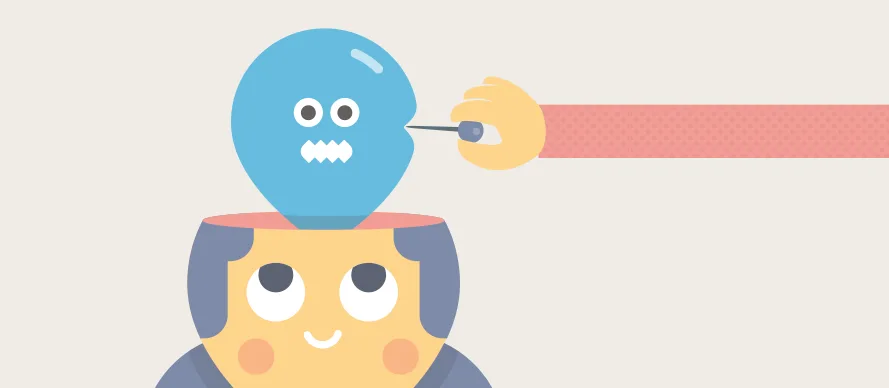Mind trip: the neuroscience of dream time
In my last post, I explored how the brain processes time, and how time is ultimately an illusion. Our mind constructs the experience of time during our waking hours, but what happens to our perception of time when our brain sends us to dream land?
In the middle of the 19th century, a man named Alfred Maury had a memorable dream. In it, he traveled back in time to the French Revolution, was convicted of treason, and was to be beheaded under the famed guillotine. As he placed his head on the ‘lunette’ and watched the blade shoot down towards his neck, he was abruptly awakened with a pain in his neck. It turns out that his canopy bed had collapsed, sending a rod right onto his neck. Being a scholar, he theorized that his entire dream must have taken place at the point of (real) impact, and that "dream-time" was different from "real-time." And, thus, scientific dream research was born.
For decades, researchers have been trying to unravel the mysteries of dreams, from their significance to their temporal complexity. The discovery of REM sleep in the 1950s opened a window into the world of dreams, where researchers could manipulate the experience of a sleeper deep in dreamland. But it wasn’t until very recently that scientists have been able to observe the elasticity of time in dreams.
Lucid dreaming
A lucid dream is defined as a dream during which dreamers, while in REM sleep, become aware they are dreaming. Lucid dreamers can consciously influence their dream content and carry out pre-arranged tasks while dreaming. Different scientific studies employing lucid dreamers showed that counting from one to ten was the same in real-time as it was in dream-time; but that doing deep knee bends took longer in dream-time than real-time. Last year, a team of researchers confirmed these findings, with the observation that a motor task - as opposed to a cognitive one like counting - required more time than in wakefulness. Perhaps this is due to the lack of muscular feedback or slower brain processing, but it shows that we may indeed move in ‘slow-motion’ in our dreams. Even more fascinating is the study in which scientists delivered an electrical shock of gamma waves to dreamers - which parallels the type of brain waves seen during lucid dreaming - to actually induce lucid dreaming.
Lost in time
The 2010 movie Inception presented a world in which dream time runs much slower than real time, and dreaming within a dream results in even slower time. We know that this is more imaginative than real, but it’s true that in dreams we find a land without the normal experience of time. And just like we can lose ourselves in music and movies, we can lose ourselves in dreams. But what the new neuroscience suggests is that we may be able to harness our own dreams, using a brain-hack to cement new skills so we are more proficient at sports or other abilities.



Be kind to your mind
- Access the full library of 500+ meditations on everything from stress, to resilience, to compassion
- Put your mind to bed with sleep sounds, music, and wind-down exercises
- Make mindfulness a part of your daily routine with tension-releasing workouts, relaxing yoga, Focus music playlists, and more
Meditation and mindfulness for any mind, any mood, any goal
- © 2024 Headspace Inc.
- Terms & conditions
- Privacy policy
- Consumer Health Data
- Your privacy choices
- CA Privacy Notice
